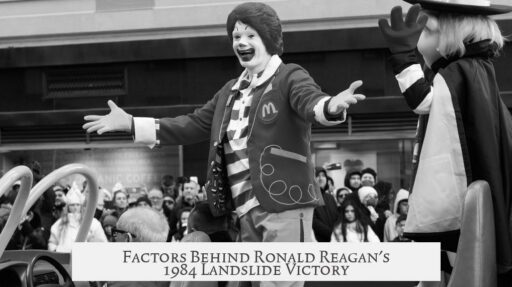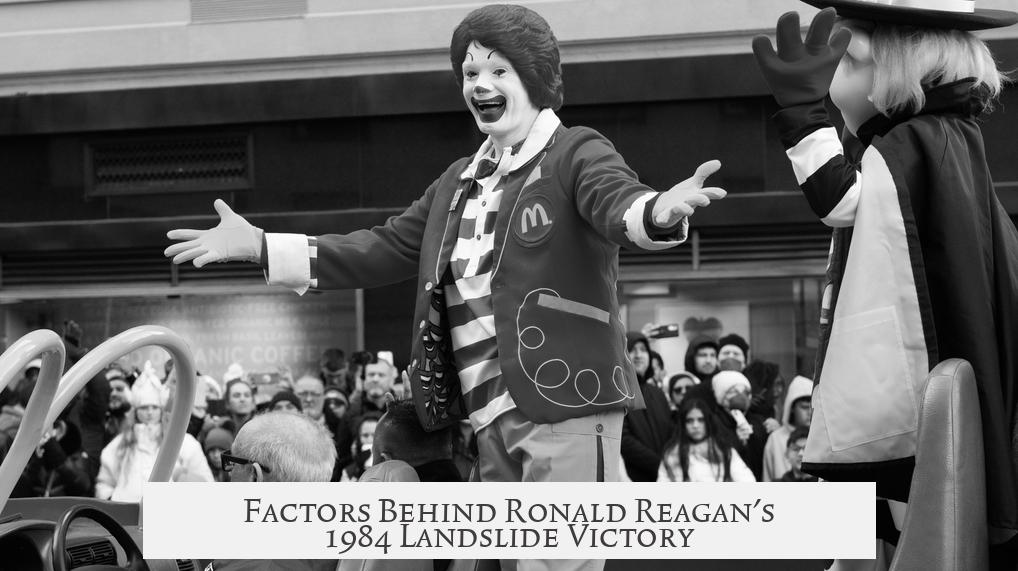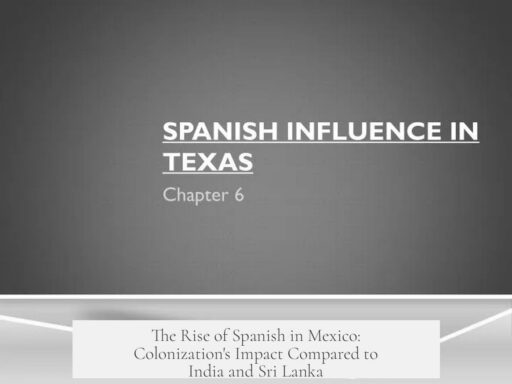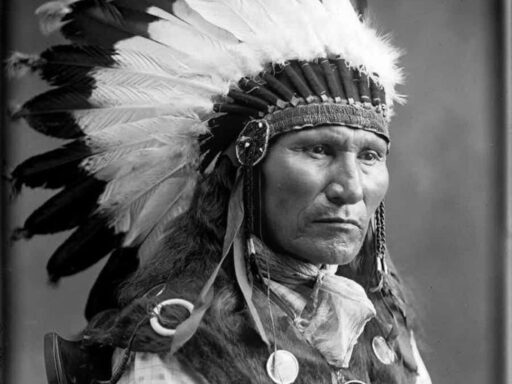Ronald Reagan’s massive victory in the 1984 presidential election, securing 525 electoral votes, stemmed from a combination of his strong economic record, effective campaign strategy, and the weaknesses of his opponent, Walter Mondale.
The economy played a crucial role in Reagan’s landslide win. Under his first term, economic growth accelerated markedly, reaching the fastest pace in 34 years. Private-sector job creation surged to near-historic levels. Housing starts climbed, unemployment rates declined, and inflation and interest rates remained low. The gross domestic product (GDP) saw a 7% increase less than a year before the election. Public approval of Reagan’s handling of the economy consistently stayed above 60%, signaling widespread voter confidence in his leadership and policies.
Internationally, Reagan’s approach to foreign policy reassured many Americans despite initial fears. His “peace through strength” strategy, emphasizing a strong military defense to deter adversaries, gained approval. Diplomatic developments, such as Soviet Foreign Minister Andrei Gromyko’s visit and the rise of Chernenko as the new Soviet leader, eased concerns about nuclear conflict. This mix of strength and diplomacy helped foster an image of Reagan as a leader who could maintain peace while defending American interests.
Reagan’s personal image and campaign were vital. He cultivated a persona of national unity, often portraying himself as above partisan politics—a figure symbolizing patriotism and hope. The “Morning Again in America” campaign ad underscored this optimistic message. On the debate stage, Reagan demonstrated strong charisma and media skill, contrasting sharply with Mondale’s less compelling presence. His quips during debates became memorable, helping him dominate public perception.
Walter Mondale’s campaign faced several significant challenges that contributed to the large electoral gap. Foremost was his controversial tax policy proposal. Mondale openly advocated raising taxes to reduce the federal deficit. This position was unpopular—polling found 80% of Americans wanted deficit reduction through budget cuts rather than tax increases. Moreover, Mondale’s plan implied higher taxes for middle-income earners, which typically made up a substantial portion of voters. Unlike previous Democratic platforms that linked tax increases to economic gains, Mondale failed to connect his plan to positive outcomes clearly.
Mondale also suffered from his association with the unpopular Jimmy Carter administration. Many voters linked Mondale to Carter’s perceived economic and international struggles. This connection weakened Mondale’s appeal as a fresh alternative. Furthermore, the divisive Democratic primaries left the party fractured. Mondale’s narrow victory over Gary Hart, relying heavily on establishment support, left some Democratic voters dissatisfied and less motivated to support him in the general election.
His campaign decisions further diminished his appeal among key demographics. By selecting Geraldine Ferraro, the first female vice-presidential candidate from a major party, he aimed to energize minority and progressive voters but alienated many middle-class white voters, who remained the largest voting bloc at the time. This strategic focus failed to build a broad enough coalition to challenge Reagan’s popularity.
| Factor | Impact on 1984 Election |
|---|---|
| Strong Economic Growth | Increased voter confidence in Reagan leadership |
| Peace Through Strength | Reassured public on foreign policy and military strength |
| Reagan’s Image and Charisma | Projected unity, optimism, and strong leadership |
| Mondale’s Tax Plan | Unpopular tax increases hurt campaign support |
| Association with Jimmy Carter | Linked to a less popular presidency |
| Divided Democratic Party | Weakened voter base and enthusiasm |
| Mondale’s VP Choice and Focus | Alienated key middle-class white voters |
- Reagan’s economic success led to strong voter approval.
- Mondale’s tax increases proved politically damaging.
- Reagan’s foreign policy strategy balanced strength and diplomacy.
- Charisma and skilled debate performance boosted Reagan’s image.
- Democratic divisions and candidate associations weakened Mondale.
- Mondale’s focus on minority voters hurt middle-class support.
What Caused Ronald Reagan to Win by Such a Massive Majority of Electoral Votes (525) in 1984?
Ronald Reagan’s overwhelming victory in 1984, securing 525 electoral votes, is a perfect storm of his opponent’s missteps, a booming economy, strong foreign policy, and Reagan’s unique charisma. Let’s break down the key reasons behind this monumental political triumph.
First, let’s talk about Reagan’s opponent: Walter Mondale. Mondale’s campaign faced serious headwinds from the very start. He openly proposed a tax hike to deal with the fiscal deficit—an honest but politically risky move. He declared that taxes had to go up, unlike Reagan, who promised no tax increases. While honesty is usually appreciated, here it backfired. About 80% of Americans wanted deficit cuts through spending cuts, not higher taxes. Mondale’s plan alarmed the middle class since it implied tax raises on them without clear benefits. This stirred fear instead of hope, turning voters away.
Adding salt to Mondale’s wounds was his association with Jimmy Carter. Being Carter’s former vice president linked him to an unpopular administration. Carter’s presidency was marred with economic woes and international challenges, making the public remember Mondale not as an individual, but as part of a less-liked past.
Lastly, the Democratic primaries weakened Mondale’s standing. The race was tight, with Gary Hart almost overtaking him. The split hurt party unity, similar to modern-day primary battles, and exposed deep fissures. This left Mondale struggling to unite his base during the general campaign.
Now, onto Reagan’s winning edge: the economy. By 1984, American voters felt tangible improvement. Reagan’s economic record shined with private-sector job growth near record levels and the fastest economic growth in over three decades. Housing starts hit a six-year high, unemployment was on the decline, and inflation kept low. These visible improvements gave voters confidence. Approvals for Reagan’s handling of the economy hovered above 60%, a solid base of voter trust.
Most importantly, the economy wasn’t just “good.” It was booming. The GDP surged by 7% less than a year before the election. This powerful growth engine transformed public opinion. Voters want prosperity, and under Reagan, they got it.
Reagan’s foreign policy also played a major role. The public feared some aspects of his stance—it was tough, sometimes aggressive—but they supported the principle of peace through strength. They wanted a leader perceived as strong, not conciliatory. The visits from Soviet foreign minister Andrei Gromyko and the rise of Chernenko reassured many that Reagan’s strong posture could secure peace without provoking nuclear war. It wasn’t just about being tough; it was about effective deterrence.
Reagan’s image was a masterclass in political branding. He crafted a persona that transcended party lines. His “Morning Again in America” campaign symbolized hope, unity, and patriotism. He appeared as the president for all Americans—a national figure wanting every day to feel like the Fourth of July.
His charisma was undeniable. Reagan’s background as a media personality gave him an edge on camera and during debates. Against Mondale, considered dull by comparison, Reagan’s humor and charm won hearts and minds. A memorable line from the second presidential debate sealed the deal for many undecided voters. Reagan wasn’t just running for president; he was performing on the political stage.
Mondale’s strategic choices also hurt him. His running mate was the first woman vice-presidential candidate, which, while historic, alienated some middle-class white voters who then felt less represented. His focus on minority voters, though noble, didn’t resonate with the majority demographic at the time. This selective targeting fractured his coalition and left many moderate voters drifting toward Reagan.
So, what does this all mean? Reagan’s 525 electoral votes weren’t a fluke. They resulted from a combination of Mondale’s unpopular tax proposals, associations with an unpopular former president, and a divided Democratic party struggling to coalesce. Meanwhile, Reagan’s booming economy was a beacon of hope for many Americans. His tough but reassuring foreign policy stance made voters feel safe. Add in Reagan’s unmatched charm, confidence, and national unity message, and voters saw a leader bringing real improvement—not just promises.
To sum it up, Reagan won big because he offered economic optimism, a strong, clear foreign policy, and personal appeal—while Mondale struggled with messaging and voter connections. Voters chose optimism over uncertainty, unity over division, and Reagan’s cheerful strength over Mondale’s somber honesty. That’s how Reagan turned a close election into a historic landslide.
Are there lessons here for today’s politicians? Absolutely. Voters crave clear solutions that touch their wallets and their safety nets. They reward confidence and rally behind leaders who speak to *all* people, not just select groups. Reagan shows what can happen when one leader embodies those traits at just the right moment in history.
So, the next time someone asks why Reagan trounced Mondale in 1984, just remember: it’s about connecting with the economy, the people, and the pulse of the nation, all packaged in a smile and a quip.
Why did Walter Mondale’s tax policy proposal hurt his 1984 campaign?
Mondale planned to raise taxes to cut the deficit. Most voters preferred budget cuts instead. His plan risked taxing middle-income earners more without clear benefits. This made his campaign less popular.
How did Reagan’s economic record influence his electoral landslide?
The economy grew quickly under Reagan, with strong job creation and low inflation. Approval of his economic management stayed above 60%. This boosted voter confidence and support in 1984.
What role did Reagan’s foreign policy play in his re-election?
Reagan’s “peace through strength” approach reassured voters despite fears of his military stance. Diplomatic moves eased nuclear war concerns, showcasing his firm yet peaceful leadership.
How did Reagan’s campaign style and image contribute to his win?
Reagan projected unity by distancing from party extremes. His charisma and strong debate presence overshadowed Mondale. This made Reagan appealing as a national figure.
Why was Mondale’s association with Jimmy Carter a disadvantage?
Voters linked Mondale to Carter, who was less popular than Reagan. This connection made Mondale less appealing to many voters.
How did Mondale’s focus on minority voters affect his campaign?
Targeting minority groups and choosing a woman VP alienated many middle-class white voters, who formed the majority. This reduced support for Mondale.




